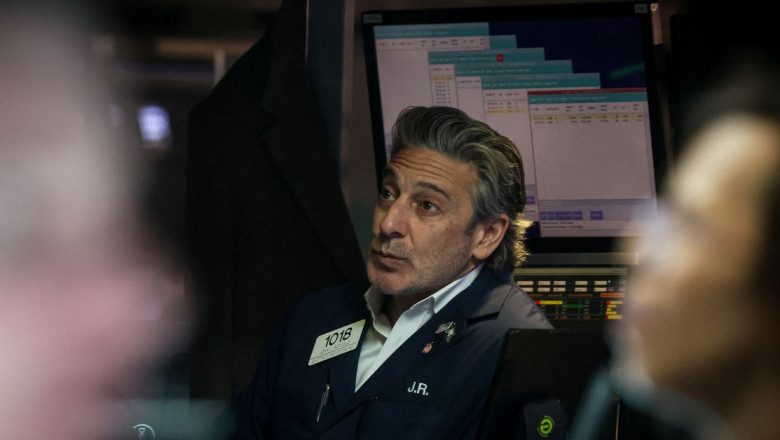
views
Wall Street ends lower, pausing rally as Powell testimony looms
NEW YORK, June 20 (Reuters) - U.S. stocks softened on Tuesday, closing in negative territory as investors began the holiday-shortened week by taking profits in the wake of a sustained rally amid signs of weakening global demand.
Federal Reserve Chairman Jerome Powell's congressional testimony Wednesday could be a potential market mover.
All three major U.S. equity indexes ended the session in the red but off session lows, with oil super-majors Exxon Mobil Corp weighing on the S&P 500 and the Dow.
The broad sell-off comes on the heels of the Nasdaq's longest weekly winning streak since March 2019, and the S&P 500's longest since November 2021.
Including Tuesday's loss, the benchmark S&P 500 has advanced 14.3% so far this year.
"The market is trying to test whether these recent gains are going to stick," said Robert Pavlik, senior portfolio manager at Dakota Wealth in Fairfield, Connecticut. "The market runs in cycles and the most recent rally has surprised a lot of people."
Investors now look to Powell's two-day testimony before Congress, starting with the U.S. House Financial Services Committee on Wednesday, which will be scrutinized for clues regarding how long the central bank will keep its restrictive policy in place.
"The Fed hasn't given these hikes much time to have a real impact on the economy," Pavlik added.
"I don't know what the Fed sees that the rest of us don't see," Pavlik said. "Inflation is not running as rampant as it was. We've seen it at the grocery stores and we've seen it at the pump."
Concerns over slowing global demand loomed larger after China cut its lending benchmarks to jump start sluggish demand, which offset a 21.7% surge in housing starts, the largest monthly jump in thirty years.
The Dow Jones Industrial Average (.DJI) fell 245.25 points, or 0.72%, to 34,053.87, the S&P 500 (.SPX) lost 20.88 points, or 0.47%, to 4,388.71 and the Nasdaq Composite (.IXIC) dropped 22.28 points, or 0.16%, to 13,667.29.
Of the 11 major sectors of the S&P 500 all but consumer discretionary stocks (.SPLRCD) ended in negative territory.
Energy shares suffered the largest percentage drop, falling 2.3% in the sector's biggest daily drop in over a month, as signs of weakening Chinese demand sent crude prices sliding.
Electric vehicle rivals Rivian Automotive Inc (RIVN.O) and Tesla Inc (TSLA.O) rose 5.5% and 5.3%, respectively, after Rivian announced it had agreed to adopt Tesla's charging standard.
PayPal Holdings (PYPL.O) rose 3.7% after KKR & Co (KKR.N) agreed to purchase up to 40 billion euros ($43.71 billion) worth of the payments firm's "buy now, pay later" loans in Europe.
Nike (NKE.N) slipped 3.6% after Morgan Stanley said it expects margin pressures arising from the company's inventory glut.
U.S.-listed shares of Alibaba Group dropped 4.5% after the e-commerce company announced Daniel Zhang would step down from his roles as CEO and chairman to focus on the company's cloud division.
Adobe Inc (ADBE.O) fell 1.9% after a report that European antitrust regulators were preparing to investigate the firm's deal to buy cloud-based designer platform Figma.
Dice Therapeutics Inc (DICE.O) surged 37.2% after Eli Lilly and Co (LLY.N) said it would buy the company in an all-cash deal for about $2.4 billion.
Shares of Fedex Corp (FDX.N) dropped nearly 5% in extended trading after the company reported quarterly results.
Declining issues outnumbered advancing ones on the NYSE by a 2.23-to-1 ratio; on Nasdaq, a 1.63-to-1 ratio favored decliners.
The S&P 500 posted 14 new 52-week highs and no new lows; the Nasdaq Composite recorded 68 new highs and 87 new lows.
Volume on U.S. exchanges was 11.15 billion shares, compared with the 11.36 billion average for the full session over the last 20 trading days.





















Comments
0 comment